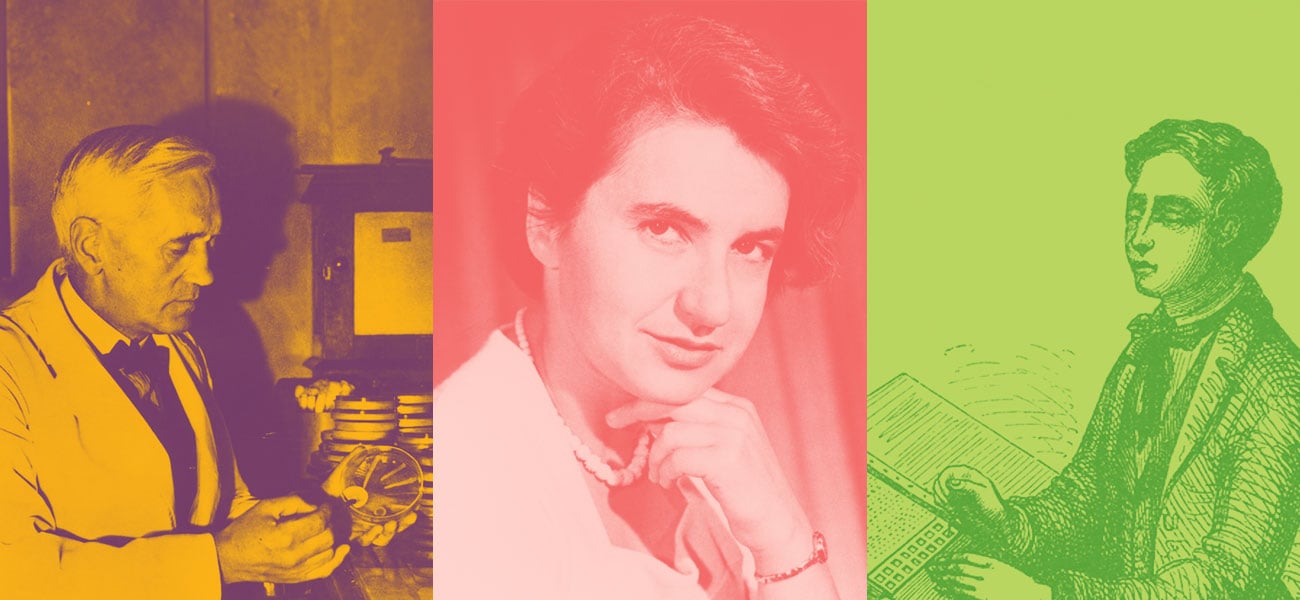Europe's history is rich with renowned figures like Einstein and Churchill. But behind these well-known individuals are countless hidden heroes whose contributions have also shaped the world.
Here, we're taking a closer look at 10 of these remarkable figures and their inspiring stories. As we explore their accomplishments, imagine the impact of your students walking in their footsteps—literally.
"The fact of being an underdog changes people in ways that we often fail to appreciate. It opens doors and creates opportunities and enlightens and permits things that might otherwise have seemed unthinkable." - Malcolm Gladwell
Discover these little-known stories that defined history:
Robert Cailliau: The co-creator of the world wide web
While Tim Berners-Lee is celebrated as the father of the World Wide Web, Robert Cailliau, a Belgian informatics engineer, played a critical role in its development. His efforts in organizing the first International World Wide Web Conference in 1994 helped shape the web as we know it today through his emphasis on the necessity of collaboration in driving innovation. His exceptional organizational skills and technical expertise highlight his significant impact on the creation and spread of the World Wide Web, solidifying his role as a vital architect of the digital age.
Rosalind Franklin: The hidden force behind DNA
British chemist Rosalind Franklin played a crucial role in the discovery of DNA in the early 1950’s. Her pioneering X-ray images laid the foundation for understanding the structure of DNA, but her work was overshadowed by her male counterparts. However, in a positive turn of events when her unpublished research fell into the hands of James Watson and Francis Crick, they incorporated it into their own model of DNA and acknowledged her indispensable role. Over time, efforts to rectify Franklin's overlooked legacy gained momentum and scholars and historians have begun to shine a light on her pivotal role in the field.
Emilio Herrera Linares: The mind behind the space suit
Emilio Herrera Linares was a Spanish engineer who invented the first space suit in 1935. His invention laid the groundwork for the suits worn during Russia's pioneering space mission in 1961 and became a precursor to those used in space exploration today. Despite his groundbreaking work, Herrera Linares remains largely unrecognized. Leading a multifaceted life, he remained loyal to the Second Spanish Republic during the Spanish Civil War amid his scientific pursuits. While his legacy’s marked by political upheaval, his work is a product of the influence of political activism on scientific innovation.
Lise Meitner: Pioneer of nuclear fission
Austrian physicist Lise Meitner was instrumental in discovering nuclear fission—a breakthrough that led to the development of atomic energy. While Meitner's association with the atomic bomb carries ethical complexities, her scientific brilliance and enduring legacy deserve acknowledgment. Despite her critical contributions, Meitner’s achievements were overshadowed by her male colleague, Otto Hahn, who received the Nobel Prize. Similar to Franklin's story, women in science struggled to receive the recognition they deserve. Despite this, the prominence of fair equity for women in STEM fields is on the rise.
Lady Mary Heath: Trailblazing aviator
Lady Mary Heath was the first person in history to fly solo from Cape Town to London. Her daring flight across Africa in an open-cockpit plane captivated the world and shattered gender barriers. It was a perilous 10,000-mile journey during which she battled heatstroke in 100 degree heat and crashed (almost fatally) in Zimbabwe. She was also a pioneering aviator who defied expectations as the first woman to hold a commercial flying license. Heath's fearless pursuit of her passions continues to inspire adventurers and trailblazers today.
Louis Braille: Champion of accessibility
Despite losing his sight at just three years old, Louis Braille's ingenuity and determination led to the creation of a groundbreaking method that enabled blind individuals to read and write independently. At just 15, he invented the tactile process of raised-dot written language, now universally known as Braille. Just five years later, he published a comprehensive book detailing this revolutionary system. His work and career as a French educator empowered millions of visually impaired people and serves as a shining example of how innovation can break down barriers and create opportunities for all.
Lavinia Fontana: Europe’s first professional female painter
Lavinia Fontana broke societal norms as Europe's first recognized female professional painter and Italian Mannerist. Her exceptional talent earned her commissions from nobility and religious institutions, allowing her to showcase her skills in an era when women had such few opportunities. Fontana's work, characterized by vibrant colours and intricate details, not only captivated her contemporaries but also paved the way for future generations of female artists. Fontana leaves a legacy of perseverance, talent, and breaking barriers in a male-dominated field.
Alexander Fleming: Penicillin's modest discoverer
Scottish bacteriologist Alexander Fleming's accidental discovery of penicillin completely revolutionized medicine as we know it today. While serving in the Army Medical Corps during World War I, Fleming witnessed the devastating consequences of infected wounds, sparking his determination to find a solution. While conducting research in his laboratory, he stumbled upon a mold with bacteria-killing properties. Recognizing its potential, Fleming identified the mold as part of the Penicillium genus and thus named the substance penicillin. This breakthrough, which ushered in the era of antibiotics, has saved countless lives. Acknowledging the role of chance in his discovery reminds us that scientific progress is unpredictable and that unplanned findings can still change the world.
Rod Temperton: The invisible hitmaker
British songwriter Rod Temperton, also known as "The Invisible Man," crafted some of the most iconic tracks of the 20th century, including the best-selling album of all time—Michael Jackson's "Thriller." Despite his significant contributions to music, Temperton remained out of the spotlight and allowed his work to speak for itself. His world-famous songs are a testament to the power of creativity and staying true to one's art.
Ibn Battuta: The world's greatest explorer
As you to continue to broaden your horizons and discover the world, here's an inspiration for all globetrotters. Ibn Battuta wrote one of the world's most famous travel logs, the Riḥlah, where he describes his extensive travels covering 75,000 miles (120,000 km). His 30-year journey across Africa, the Middle East, Asia, and beyond is one of the most remarkable travel stories in history. His extensive expeditions and the detailed accounts he left behind offer invaluable insights into the medieval world. Battuta’s work inspires a spirit of exploration and curiosity, essential qualities in both travel and education.
Ignite your students’ journey!
Exploring these hidden heroes of the past is just the start. Curious to learn more? Bring history to life as students experience the destinations where stories like these took place.
Discover Jumpstreet's suite of student travel programs to Europe in our new International Brochure, or head to our European destinations on our website to start planning your next adventure!



